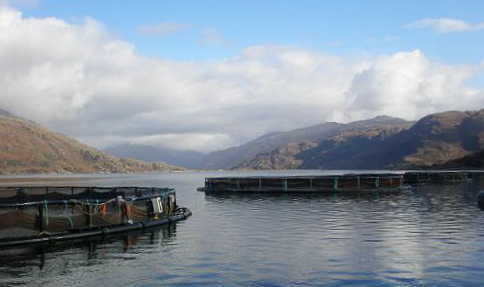A PETITION calling for the urgent relocation of salmon farms away from the estuaries of major salmon rivers in Scotland has raised more than 9000 signatures in less than two weeks.

The campaign to halt the spread of sea lice infestations which are harming wild fish stocks, has been launched by the Salmon and Trout Association, the UK’s leading game angling charity as a “dire warning of impending disaster” and a call to arms to the Scottish Government to act “before it is too late.”
Paul Knight, executive director of the S&TA, said today: “We fully recognise that salmon farming makes a significant contribution to the Scottish economy. However, this industry is also threatening the very survival of our wild salmon and sea trout in the west highlands and islands.
“It is the source of huge sea lice infestations that are literally eating our wild fish alive.”
He said it was “fundamentally inequitable” that fish farm interests should take precedence over one of the country’s greatest natural assets.

Knight said there was conclusive scientific evidence, some gathered by the Government’s own staff, of the damage caused by sea lice from sea-based farms.
The S&TA whose patron is Prince Charles, makes two demands in the petition:
- All sea-based fish farms are moved away from the estuaries of major wild salmon rivers to reduce the impact of sea lice
- Salmon smolt farms are banned from operating within any wild salmon river system
Smolt escapes are a risk to the integrity of natural strains of wild fish and are banned from Norwegian salmon river systems.
George Houldsworth, the S&TA Scottish policy officer added: “There is a great deal of anger at the continuing intransigence of the Scottish Government to address this problem. We aim to use the petition to force the government . . . to take appropriate action to ensure that salmon farming becomes, at long last, environmentally sustainable.”
The petition will run until early next year.